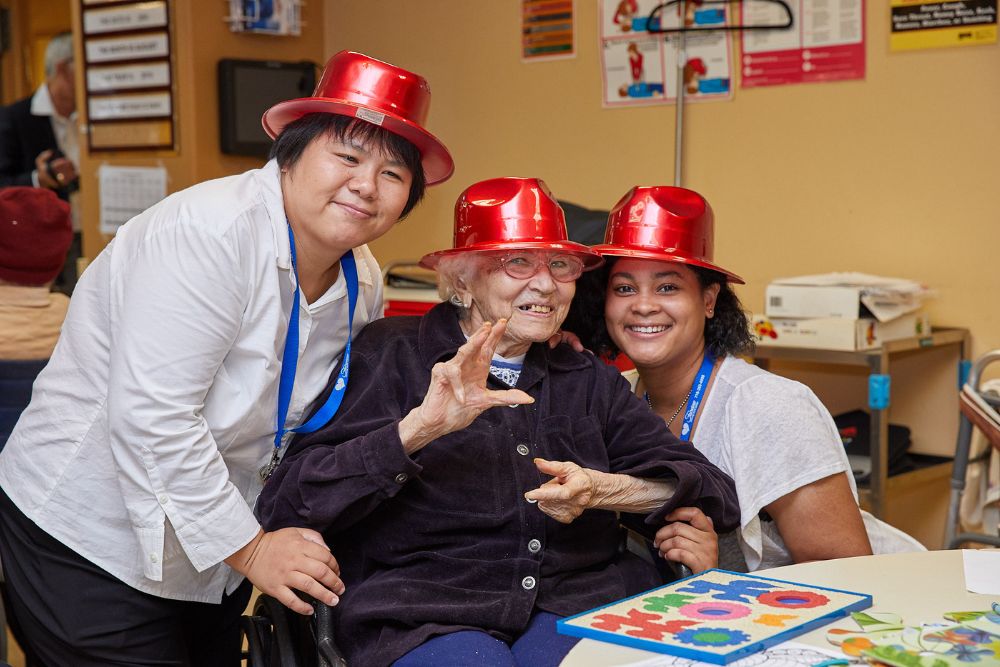5 Common Symptoms of Stress Disorders in the Elderly
Though we all deal with stress, it often worsens as we age due to changing circumstances and lifestyles. Financial strains, career changes, and losing loved ones all take a toll on your physical and mental health. Failing to reduce elderly stress could lead to chronic symptoms, including pain, behavioral changes, depression, and isolation. For some, the issues even have dangerous consequences, resulting in drug or alcohol use as a coping mechanism.
If overcome with stress disorders, it may be time to seek medical advice. Your symptoms could be due to a neurological disease requiring treatment to slow or prevent the progression. If not treated, uncontrolled stress can impact your memory, causing several other health conditions for you. The treatment will evaluate your condition first to discover the cause of your worries and offer possible solutions.

Symptoms of Stress Disorders in the Elderly
According to the Institute on Aging, our bodies are built to handle short-term stressful situations. But they can’t remain in such a tense, alert state for too long without consequences. Long-term stress leads to numerous disturbing symptoms as we age, causing several mental and physical problems.
1. Pain
One of the most common signs of chronic stress in seniors is pain, though not everyone experiences the same type. In a recent article, Lisa Johnson discusses the stress-related symptoms she tried to ignore after the death of her son. These include headaches, shoulder pain, fatigue, and upset stomach. Joint pain and other aches are other physical symptoms to watch for.
2. Feeling irritation
Another symptom of stress disorders in the elderly is mood changes. Even the most easy-going person may become more irritable with loved ones or strangers. According to the National Institute of Mental Health, anger and aggression also become more common. Regaining a positive attitude is difficult with a stress disorder, even when participating in activities you may have once enjoyed.
3. Obsessive thinking
Obsessive or intrusive thoughts are often a sign of chronic stress. Kelly Bilodeau describes these as unusual, bothersome, or repetitive thoughts you can’t control or get rid of. Obsessive-compulsive disorder (OCD) is another possible symptom of elderly stress disorders. As well as persistent thoughts, repetitive rituals, fears, and phobias could become a part of your routine.
4. Hopelessness
Another negative emotion associated with high levels of senior stress is hopelessness. The loss of loved ones, financial stability, or independence affects your mental health. Physical problems also add to the mix, often causing people to spiral into sadness.
Many see no hope of regaining what they’ve lost and losing what they have left. Some individuals even entertain thoughts of suicide or death, requiring intervention to bring them back to the light.
5. Increased worry and anxiety
The lifestyle changes necessary as we age cause various worries, as does the deteriorating health of the elderly. High stress levels worsen symptoms of anxiety and other dangerous disorders. These include social anxiety during everyday situations, panic disorder, or generalized anxiety with no specific cause. If steps aren’t taken to reduce your worries, your physical health worsens, risking heart attack, stroke, or other severe conditions.
Resources:
- Institute on Aging https://www.ioaging.org/medical-concerns/signs-stress-seniors-recognize-stress-early-generate-resiliency/
- Lisa Johnson, Honor Connor https://honorconnor.org/2022/05/how-mental-health-affects-physical-health/?gad_source=1&gclid=Cj0KCQjwq86wBhDiARIsAJhuphnU5jpPSdsg7wGFA2MjnWzTFl986-LVK55M5f3PyimssAVPulyBoFkaAhcfEALw_wcB
- National Institue of Mental Health https://www.nimh.nih.gov/health/topics/older-adults-and-mental-health
- Kelly Bilideau, March 26, 2024, Harvard Health Publishing https://www.health.harvard.edu/mind-and-mood/managing-intrusive-thoughts
- American Association for Geriatric Psychiatry https://www.aagponline.org/patient-article/anxiety-and-older-adults-overcoming-worry-and-fear/
This article is for educational and informational purpose only and does not substitute for professional medical advice. For any questions about your own health condition, speak to a qualified physician or healthcare provider.







Leave A Comment